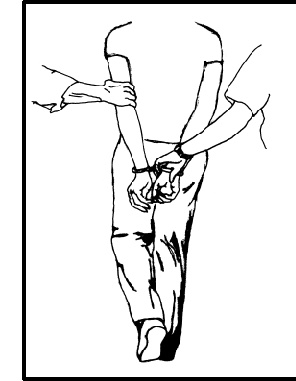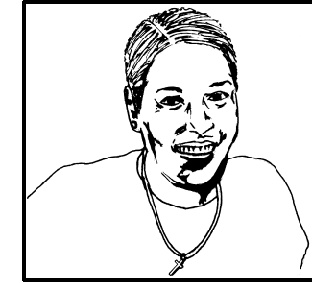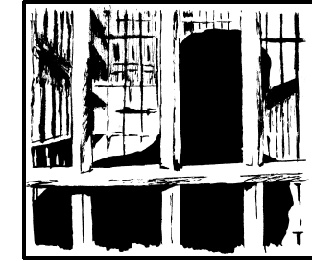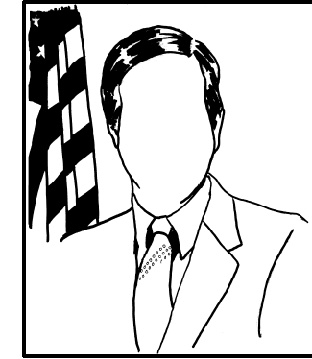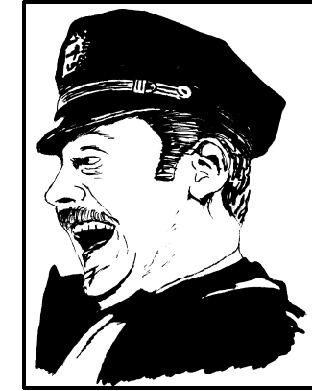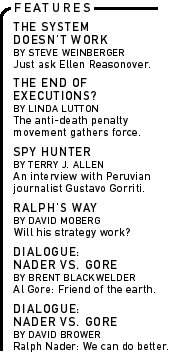
|
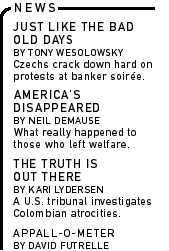
|
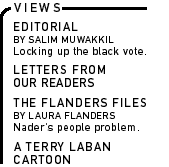
|
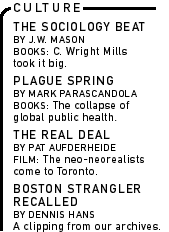
|
| |
|
|||||||||
|
On the day Ellen Reasonover walked out of a Missouri prison after serving 16 years for murder, Cheryl Pilate was there to drive her home. As Reasonover's lawyer, Pilate was feeling proud, to be sure. She had come to believe fervently in Reasonover's innocence, and just as fervently that her client had been railroaded by a St. Louis prosecutor. A federal judge finally had agreed. But Pilate was not buying into the platitude about how Reasonover's release in August
In the five years since Pilate had agreed to serve as Reasonover's last-ditch lawyer, she had learned that a depressing sameness characterizes wrongful convictions: It is difficult to unmask prosecutorial misconduct, and ridiculously hard to persuade judges to free those imprisoned because of such misconduct. Each case takes a superhuman effort, and few prisoners find superhuman help. On the Reasonover case, Pilate had worked longer hours than ever before, long even by the standards for associates in her 12-lawyer firm. Of course, she didn't do it alone. It took many people to ferret out the truth: Colleagues in her Kansas City firm of Wyrsch, Atwell, Mirakian, Lee and Hobbs, as well as in a small St. Louis firm where the principal lawyer chose to risk his livelihood by signing on; a New Jersey minister-turned-detective who revived the case; a police sergeant who risked the scorn of fellow cops; career criminals with lots to lose who stood up for Reasonover anyway; a private investigator who appeared from nowhere with an amazing piece of exculpatory evidence; an unlikely federal judge. What were the odds of all those people coalescing to help Reasonover win her freedom? A thousand to one? Probably more like a million to one, Pilate decided. Conventional wisdom about wrongful convictions as aberrations due to good-faith mistakes by police officers and prosecutors--rather than deliberate actions or reckless indifference--is crumbling. Illinois Governor George Ryan, recognizing that in his state as many men on Death Row have been exonerated as have been executed, halted executions. Los Angeles Police Chief Bernard C. Parks acknowledged that his officers had framed dozens, maybe hundreds, of people; prosecutors moved ahead with the cases anyway, not knowing or not caring that the cops were the criminals. DNA testing is demonstrating how frequently prosecutors charge innocent individuals. There are more than 80 documented cases in which DNA evidence or other factors have led to the exoneration of inmates on Death Row. There are not precise statistics on non-Death Row exonerations, but the numbers are certainly in the thousands. The linchpin of the wrongful conviction phenomenon is prosecutors more committed to winning than to justice. In this respect, Ellen Reasonover's case is a typical wrongful conviction saga. There are more egregious examples, but hers has more to teach. On January 2, 1983, James A. Buckley was murdered about 2 a.m. at a Vickers service station in the Dellwood area of St. Louis County. The 19-year-old white male had been shot seven times, with robbery as the apparent motive. When 24-year-old Ellen Reasonover heard about the murder on the news later that
She agreed to meet Capt. Dan Chapman the following day, when she revealed her real name. Reasonover told her story and explained she had seen a black male walking away from the cashier's cage. She assumed he was the attendant, but he never responded to her knocking. She saw two other black men on the lot. Reasonover said she drove to a convenience store to get change there instead. Chapman asked Reasonover to look through mug shots. She identified suspects after police urged her to point out any similar features of the men she had glimpsed in the dark. Then Reasonover passed a stress test, which is basically a modified lie detector test. Police and prosecutors began to suspect Reasonover when they determined that two men whose mug shots she had pointed to were in custody at the time of Buckley's murder. Could Reasonover be deflecting suspicion from herself? Then police learned that a few days before the murder Reasonover had filed a complaint against a boyfriend, Stanley White, for breaking her car windows. White's car matched the description of one Reasonover saw at the Vickers station. Was Reasonover fingering White as a murderer for revenge? While Reasonover had no criminal record, law enforcement officers knew of her family. A half-brother had killed his girlfriend and her sister. Another half-brother had robbed a local supermarket. The noose tightened after police and prosecutors learned that in 1978, while working at a Vickers station, Reasonover had been accused by the manager of robbery. Although Reasonover was never tried, police and prosecutors interpreted the allegation as damning. On January 7, police gave Reasonover a second modified lie detector test. She still had no lawyer. This time she failed. She was placed under arrest. The arrest raised red flags often seen in wrongful convictions. There were no witnesses, no murder weapon and no blood, hair, fingerprints or other physical evidence linking Reasonover to the crime. And once investigators had locked in on Reasonover, they halted inquiries into other suspects such as Buckley's customers who bought marijuana from him during work hours, an individual Buckley had fought with at a party the month before, or area robbers with a similar modus operandi. Conscious or not, racial stereotyping played a role as well. Police also had interviewed two white males who had stopped at the service station near the time of the murder. Looking at a photo array, one witness said a black individual "came the closest" to a man hanging around the service station. It was one of the photos singled out by Reasonover. The other witness provided a description of a second black male similar to one given by the first witness. Yet when descriptions by the white witnesses failed to pan out, they did not end up as suspects like Reasonover, a poor black woman from the neighborhood. Police locked Reasonover in a cell, not allowing her to see her 2-year-old daughter Charmelle. That same evening, police locked Stanley White in a nearby cell to see what they would discuss. Nobody told Reasonover and White their 56-minute conversation was being taped. But rather than discussing the murder they allegedly committed, Reasonover and White expressed puzzlement, laced with anger, about their incarceration. Prosecutors filed the potentially exculpatory tape away without ever mentioning it to Reasonover or the lawyers who would represent her. After recording the conversation, police and prosecutors released White, then transported Reasonover to a different jail. Sharing her cell were two other women, Rose Jolliff and Marquita Butler. In that cell, Reasonover allegedly confessed to Jolliff. Reasonover denied confessing. There was no tape recording. Furthermore, Butler confirmed Reasonover's version, despite inducements from Chapman and St. Louis prosecutor Steven H. Goldman. The next day, Reasonover was free to go, without supervision. But police and prosecutors did not forget her. On January 12, police and prosecutors taped a telephone call from the still-incarcerated Jolliff to Reasonover on the outside. During the conversation, Reasonover spoke of her innocence eight times--to the same woman who supposedly had heard an unprovoked confession five days earlier. Again, prosecutors filed away the seemingly exculpatory tape. Public pressure was building to charge somebody with the Buckley murder and make it stick. A month after releasing Reasonover, police and prosecutors found a reason to return her to custody--a February 3 robbery at a Sunoco station. Again, there was no physical evidence, no proof of a connection between Reasonover and two alleged black male perpetrators. There was only eyewitness identification by a white male attendant, whose original description of the female perpetrator failed to match Reasonover in at least three significant ways. But the arrest yielded a new opportunity to interrogate another set of Reasonover's
Goldman had Jolliff and Lyner to testify against Reasonover but wanted more. On February 25, he asked police officer Marsha Vogt to enter Reasonover's cell disguised as a fellow inmate and wearing a hidden recorder. Reasonover said nothing incriminating, however. The prosecution once more filed away potentially exculpatory evidence. The Sunoco robbery proceeded to trial July 12, 1983, with Reasonover as the lone defendant. Goldman went for a conviction on the lesser crime first, so he would have the option of introducing a criminal record at her murder trial. Despite the inconsistent evidence and the failure of the prosecutor to charge any alleged accomplices, Reasonover was found guilty and sentenced to seven years in prison. When Goldman took Reasonover to trial on the Buckley murder charge four months later, he still had no physical evidence or eyewitnesses. So he put his jailhouse snitches on the stand. Lyner described her criminal record as "eight bad check charges, four stealing charges and one misdemeanor assault." Lyner admitted to cutting a leniency deal with Goldman, but downplayed it by swearing it was her first ever. Jolliff swore her testimony was given without any promise of leniency for her bad checks and mail tampering charges. In his opening statement, Goldman told the jurors Jolliff "wasn't offered any break on the case or anything." In his closing argument, Goldman emphasized Jolliff "doesn't have a reason in the world to be lying." She "shouldn't be criticized" for her life of crime, but rather "put on a pedestal for ... testifying in this case." Reasonover's private-practice lawyers Forriss Elliott and Madeline Franklin put on little of a defense, inexplicably failing to call Reasonover's cellmates to contradict Jolliff and Lyner's testimony, to probe whether the snitches' criminal histories and deals had been fully disclosed, to question the undercover policewoman who they knew from sources had heard nothing to indicate guilt, or to dispute the police version of the interrogation sessions. It was not completely for lack of trying, however. After Reasonover's indictment, defense attorneys asked the prosecutor for written or recorded statements by the defendant and electronic surveillance conducted during the murder investigation--material that tended to negate guilt or weaken prosecution evidence. Her conversations with White, Jolliff and Vogt fell into at least one of those categories, but the prosecution never produced them. On December 2, 1983, an all-white jury found Reasonover guilty. "You know what she deserves," Goldman said during the sentencing phase. "Somewhere in Ellen Reasonover's life she decided that killing a person is like taking a drink of water. ... That's what it means for her." The jurors came within one vote of granting the prosecutor's wish for a death sentence. Because of the 11 to 1 split, the judge gave Reasonover life without possibility of parole for 50 years. In 1984, the Washington Post decided to investigate Reasonover's conviction based on a tip. The Post story mentions the police eavesdropping on Reasonover and White's jailhouse conversation in passing. Although the Post reporters had no idea of its exculpatory nature, they doubted Reasonover's guilt based on the absence of evidence other than the testimony of two jailhouse snitches. The Post article boosted the morale of Reasonover's appellate lawyers, who had learned just enough about the tape to protest its nondisclosure. The state replied that because Reasonover and White "did not discuss anything of substance concerning the killing," the prosecution "should not be faulted for not disclosing a conversation which contained nothing of evidentiary value to either party." In other words, the state was casting doubt on Reasonover's credibility because she never discussed details of a murder she did not commit. The appellate court, which never asked for nor heard the tape, ducked the controversy: "Although it would appear that [the tape] should have been disclosed to the defense," reads the judges' decision, "absence of any indication in the record of the content of the conversation prevents our determination of whether the state's failure in this regard amounts to prosecutorial misconduct warranting reversal." The judges brushed aside prosecutorial failure to fully disclose deals with Jolliff and Lyner, saying they were confused by the criminal-history printouts of Lyner and Jolliff filed by Reasonover's lawyers and so would not bother with that evidence. Concerning an allegation in Reasonover's petition about Goldman's interrogation of Chapman and Lyner, the appellate court conceded the prosecutor "was consistently blatant in his use of leading questions." But the judges noted Reasonover's lawyers failed to object to the leading questions. After the Missouri Supreme Court failed to grant relief, Reasonover's lawyers petitioned the U.S. Supreme Court, alleging a "consistent pattern of deception and cover-up by the [prosecution]" that "infected the integrity of [Reasonover's] conviction." The Supreme Court denied certiorari on March 23, 1987. The next step was a post-conviction petition in the state courts. George Hairston, a New York lawyer from the NAACP, arrived in St. Louis for that purpose on July 12, 1988. He learned to his dismay that the deadline had been June 30. The missed deadline left only the habeas corpus route, which required Reasonover to prove actual innocence--a monumental burden that is almost never overcome. Unsurprisingly, federal Judge Stephen N. Limbaugh denied Reasonover's habeas petition on November 20, 1989. While Reasonover's appellate lawyers despaired, she found hope after writing to Jim McCloskey of Centurion Ministries in Princeton, New Jersey in March 1987. Reasonover knew of McCloskey thanks to a magazine article about the exoneration of Nathaniel Walker, convicted in 1975 of rape in New Jersey. Twelve years later, McCloskey persuaded the prosecutor to test the semen on a vaginal swab taken from the victim. The blood type developed from the semen exonerated Walker. Walker was the third inmate McCloskey had helped free. During his divinity studies, McCloskey had met George De Los Santos, a convicted murderer who maintained he had been framed. McCloskey conducted his own investigation, came to believe De Los Santos and helped free him in 1983--at which point the freshly minted theologian raised money, hired a small staff and rounded up volunteers. By reading Reasonover's letters, McCloskey learned her conviction had hinged on jailhouse informants. Centurion Ministries decided to make the Reasonover case a priority when the staff could get to it. Finally in 1993, McCloskey and investigator Paul Henderson traveled to Missouri to investigate first-hand. While a Seattle Times reporter, Henderson had won a Pulitzer Prize for his investigation that freed an innocent man convicted of rape. Hearing about Centurion Ministries' effort on Reasonover's behalf, Steven Goldman went on the offensive. He had become a state court judge in 1988. From his perspective, he had done his job in 1983--taking the information developed by police, convicting a killer, then seeking the death penalty. Goldman felt certain about Reasonover's guilt. Secure in his judgeship and years away from active involvement in the case, Goldman could not let it rest. He attacked Centurion Ministries and others working to help Reasonover in letters to the St. Louis Post-Dispatch after its reporters chronicled new developments. Not cowed by Goldman, McCloskey retained a new lawyer for Reasonover--James R. Wyrsch in Kansas City. With its modest budget, Centurion could not afford to pay full hourly rates. On the other hand, McCloskey had no intention of asking for pro bono representation. That meant being placed on the back burner. Wyrsch tapped Cheryl Pilate to help. She was later joined by attorney Charles Rogers, who recently had joined the firm after 18 years of public defender and death penalty defense work. Pilate found little reason for optimism while studying the voluminous files in her comfortable 30th floor downtown office. OK, Pilate thought as she labored to absorb the information--why is there any reason for hope? Even if she agreed with McCloskey that Reasonover was innocent, Pilate knew the only strategy left with all appeals exhausted would be persuading a judge to reconsider on grounds of actual innocence--a strategy that rarely succeeds when that evidence has been withheld by the prosecution. Yet Pilate persevered in part because she truly liked Reasonover. Prison had depressed Reasonover but not hardened her. Easygoing, with a childlike naivete, seemingly unconscious of race, not prone to jailhouse lawyering, Reasonover was easy to warm to. Twice, Pilate paid to fly Reasonover's teen-age daughter from St. Louis to Kansas City. Pilate would pick up Charmelle at the airport, then drive her several hours to the prison in Chillicothe. While re-interviewing prosecution witness Kenneth Main, who had stopped at the service station near the time of Buckley's murder, Henderson, the Centurion investigator, learned he had heard part of the Reasonover-White tape at the police station before the 1983 murder trial. Main remembered little about the substance of the conversation, but recalled his disgust at the filthy language Reasonover and Stanley White were using. When Pilate learned a prosecution witness had heard portions of a tape still unavailable to the defense, she was confused and angry. What was going on? Pilate decided to try to find the tape at the Missouri attorney general's office, which had represented the state during Reasonover's appeals. But Gary L. Gardner, an assistant attorney general, said he could not locate the tape. Besides, he said, the contents were unimportant. Steven Goldman had told him so. During a trip with McCloskey to St. Louis in October 1995, Pilate asked Goldman's successors to produce the tape. Inwardly, she had little hope of ever hearing it. Pilate tried to be patient while John D. Evans from the prosecutor's office conducted his search. On that same trip, Pilate lunched with Goldman near the courthouse. He was pleasant
Pilate couldn't believe it when she heard that Evans had found the tape in storage. Word of the discovery arrived in February 1996, about four months after she had spoken with him. It would have been so easy for Evans never to look-- or, having found the tape, to continue its suppression. On the tape, which indeed was filled with swearing and street slang, Reasonover tells White a story consistent with what she told the police. With evidence like this finally disclosed, Pilate wondered, how could the state oppose release on grounds of actual innocence? Despite her elation upon hearing the tape, Pilate's optimism shattered quickly. Nobody in the Missouri attorney general's office would discuss anything about the Reasonover case, much less exoneration. With informal bargaining ruled out, Pilate realized she would have to persuade a judge that the habeas route rejected in 1989 needed to be granted in 1996. Pilate worried about which federal judge in St. Louis would draw the assignment. Somehow, the assignment ended up with U.S. District Judge Jean C. Hamilton, a Republican appointee with a prosecutorial background. Nonetheless, Pilate found reason to be upbeat. First, at least she wasn't Stephen Limbaugh, who rejected Reasonover's habeas appeal in 1989. Second, Hamilton had been the judge in an actual innocence case that later reached the Supreme Court. As the defense team and the Missouri attorney general filed competing blizzards of paper, Pilate began to wonder if Hamilton was sympathetic. Month after month, the judge said nothing as Reasonover's chance at freedom ticked away. Would Hamilton subscribe to arguments from Missouri Attorney General Jay Nixon and his assistant Stephen D. Hawke that the Reasonover-White tape had no evidentiary value? Would the judge believe it was "inadmissible hearsay," as the state argued? Would she buy into the state's language that "a self-serving pretrial statement cannot rise to the level of exoneration"? However, the slowness of the process did produce one benefit for Reasonover: In December 1998, St. Louis co-counsel Rick Sindel, whom Pilate had recruited because of the need for a presence in that city, heard from a private investigator who had accumulated material while working on an earlier Reasonover appeal. The investigator read a St. Louis Post-Dispatch article about Reasonover on Christmas Day that stirred him to call Sindel. In the investigator's materials, Sindel noticed evidence of an undisclosed leniency deal between Goldman and Rose Jolliff, who had denied such a deal under oath. A memo to a colleague from Jolliff's public defender Stormy White before the Reasonover trial opened said Jolliff "is going to be a witness in a capital murder case that Steve Goldman is trying. ... After she testifies, she is going to plead guilty to this case and be given probation. The details of the plea can be worked [out] after she testifies. The state does not want to allow ... defense attorneys to bring up any kind of deal that might have been made in Rose's case. I have been assured by Steve Goldman that the state isn't going to burn her, that she will receive probation." It looked to Pilate as if Goldman had suborned perjury at trial, misled the jury in his
The deposition request became moot in June 1999, when Hamilton ordered an evidentiary hearing, at which time Reasonover's lawyers and the state could question witnesses under oath and present other evidence. An evidentiary hearing had been Pilate's wish for years, but precedent was against her. The drama in Hamilton's courtroom began quickly, when the first witness unexpectedly questioned Goldman's credibility. Gary Gardner of the attorney general's office testified that he spoke with then prosecutor Goldman twice during the appellate stage. The first time, Gardner said, he came away believing Goldman had listened to the tape of Reasonover and Stanley White. The second time, Gardner came away with the impression Goldman had never heard the tape. The apparent shift surprised Gardner, who decided against challenging Goldman directly. Pilate was anxious to see how Goldman would respond. To her surprise, he testified that in 1983 he knew little about court rulings on giving exculpatory evidence to the defense. Goldman conceded the Reasonover-White tape should have been turned over. Justifying his failure to disclose, Goldman said police misinformed him about the contents of the tape, so he never listened to it. He assumed the police had destroyed it. "Did you try to find out why it had been destroyed or taped over?" Sindel inquired. "I never asked," Goldman replied. Goldman's testimony did not square with the version presented by Chapman, who--though unified with Goldman about Reasonover's guilt--would not share the blame for suppressed evidence. "Did you tell anyone that you or any other member of the police department had accidentally destroyed [the tape]?" Sindel asked. "No sir," Chapman answered. "Because to the best of your knowledge, you gave it over to Mr. Goldman?" Sindel asked. "We gave everything to the prosecutor's office," Chapman replied. Conflicting testimony about the Reasonover-White tape was not Goldman's only problem at the evidentiary hearing. His testimony about discussions with jailhouse informant Jolliff raised eyebrows, too, because it failed to track with accounts from his contemporaries in the prosecutor's office. Dealings with Lyner, the other jailhouse snitch, came back to haunt Goldman as well. Jurors at Reasonover's trial had no idea Lyner was a major player in the crime world, something discovered long after the trial by Pilate's defense team. St. Louis police sergeant Ronald Klein told the team how during 1982 he began investigating Lyner in connection with a missing rental car. Entering Lyner's apartment, Klein found her in "a drug-induced stupor." The search turned up "literally hundreds of stolen credit cards and checkbooks and a closet full of stolen purses." Klein eventually verified at least $350,000 in fraudulent purchases, and guessed the total might have exceeded $1 million if he had continued. Klein lost track of the Lyner case after it shifted from the city to the county courts. He assumed she would receive about 30 years in prison. So he was surprised to learn that in return for testifying against Reasonover, Lyner received less than a year. Klein said he "would be extremely skeptical about the truthfulness of trial testimony given by ... Lyner under oath in a court of law, especially if, as a reward for such testimony, she could ... avoid many years of state imprisonment." Almost immediately after cooperating with prosecutors, Lyner left her cell for a work-release dormitory. Lyner's 1979 conviction disappeared from her record. Her 1983 deal with Goldman included one year of incarceration on four pending forgery charges. But she was unavailable for the 1999 evidentiary hearing, having committed suicide in 1990. Sindel showed restraint while questioning Goldman, until the end. "So it was your mistakes which deprived Ellen Reasonover of her freedom?" Sindel asked rhetorically, over an objection sustained by Hamilton. "So it was your mistakes which almost sentenced her to death?" Sindel asked, over another sustained objection. The prosecution's conduct came under additional attack during the evidentiary hearing, when the judge learned about the tape made of the conversation between Reasonover and Rose Jolliff on January 12, 1983. Pilate had inspected the prosecutor's files in 1995, but saw no sign of that tape. Why was it suddenly given to the defense by the attorney general's office, unremarked upon, during the evidentiary hearing? Pilate's annoyance was outweighed by her delight at being handed another piece of suppressed exculpatory evidence. Hamilton could not hide her displeasure, though, asking an assistant attorney general: "Are there any other documents you haven't disclosed? This is a little startling." Yet another surprise occurred when Jolliff, without protection from a prosecutor, invoked the Fifth Amendment 28 times. Questions she refused to answer included: "Did Ellen Reasonover ever tell you anything about whether or not she killed or anyone else killed an individual named James Buckley?"; "Did you lie when you testified in State of Missouri versus Ellen Reasonover?"; and "Did the prosecuting attorney at any time ask you to lie in connection with your testimony?" A month after the evidentiary hearing, Hamilton ruled. Peppering her opinion with references to previous wrongful conviction cases involving prosecutorial misconduct, Hamilton focused on three instances in the Reasonover case: • The withheld Reasonover-White tape undermined Jolliff's snitch testimony. Furthermore, Goldman "had a constitutional duty ... to inform petitioner's trial counsel" about any understandings with Jolliff concerning leniency. • "The new evidence suggests that Lyner misrepresented herself, before the grand jury and at trial, when she said the deal she made in exchange for her testimony was the first deal she had made with the prosecutor's office in exchange for favorable treatment." • "Because the Reasonover-White tape was created by police investigators, Goldman had a duty to find out about the tape and to disclose it to petitioner's trial counsel." In naming the offending prosecutor, Hamilton did something relatively few judges have done when freeing the wrongly convicted. On August 2, 1999, Hamilton ordered Reasonover released. A case like this never has a truly happy ending, especially when the actual murderers are still at large, 17 years and counting. Reasonover, now 42, has had a difficult time readjusting to freedom. She has enjoyed getting reacquainted with her 19-year-old daughter, mother and other relatives. But Reasonover has few job skills and little money. There is no automatic compensation for the wrongfully convicted. She will have to petition the state legislature for a special monetary award or sue various parties responsible for her imprisonment. Neither Goldman, Chapman nor anyone else has been punished for this miscarriage of justice. Pilate and the Centurion staff continue to be attentive to Reasonover, but they can only do so much, especially given their intensive involvement in other wrongful conviction cases. A few days after her release from prison, Reasonover appeared on
the Today Show. Asked if she was bitter, Reasonover said
no. Then she added: "Dan Chapman and Steve Goldman, they're going
to have to answer to God for what they did to me." Steve Weinberg is a freelance investigative reporter in Columbia, Missouri. Research for this article was supported by a grant from the Nation Institute.
|


